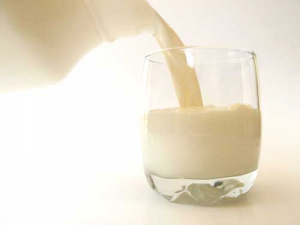Open Country opens butter plant
When American retail giant Cosco came to audit Open Country Dairy’s new butter plant at the Waharoa site and give the green light to supply their American stores, they allowed themselves a week for the exercise.
 Researchers from Fonterra and Massey University are urging parents to help their teenage girls build healthy strong bones with dairy.
Researchers from Fonterra and Massey University are urging parents to help their teenage girls build healthy strong bones with dairy.
Give your teenage girls 2-3 serves of dairy a day to ensure they have strong healthy bones for life.
That’s the message from nutrition experts who are concerned for the wellbeing of our teenage girls.
Researchers from Fonterra and Massey University are urging parents to help their teenage girls build healthy strong bones – to help avoid osteoporosis later in life.
Massey University senior lecturer in nutrition Pamela von Hurst stresses that adolescence and early adulthood is the optimal time for building a strong skeleton.
“For a number of reasons many adolescents, mainly girls tend to lower their dairy intake following puberty. Often they are exploring dietary options, and some are worried about their weight. But the problem with that is that it is at this very stage of life when our bodies start laying down calcium to strengthen bones against osteoporosis,” Dr von Hurst explains.
“What we see following puberty is a cessation in height growth. Girls have reached their maximum height, the skeleton has spent many years growing, and then the body goes into strengthening mode.
“In adolescence a burst of new hormones come into play, namely oestrogen. Oestrogen is a potent bone building hormone. And this first flood of oestrogen is what drives the body’s bone mineralisation process. That’s the laying down of calcium or ‘bone banking’ that strengthens the skeleton. This process continues for the next 5-10 years,” says Dr von Hurst.
“That period is so dynamic. It is the most opportune time to develop strong healthy bones that will hold our girls in good stead for life. The risk of osteoporosis can be reduced, and the best time to do it is before reaching adulthood.” Dr von Hurst says.
Fonterra principal research scientist Linda Schollum agrees and highlights the importance of reaching the recommended 2-3 serves of dairy per day throughout life.
“In childhood and adolescence, we need good nutrition and high calcium foods to achieve maximum bone mass. In adults and the elderly a nutritious diet helps preserve bone mass and strength. It also speeds recovery and reduces risk of fractures,” says Dr Schollum.
“There are so many great ways to serve up dairy too. Smoothies are really popular with teenagers, and they provide good protein as well as calcium. They seem to go hand in hand with exercise, which is also important for developing and maintaining strong bones.”
Global trade has been thrown into another bout of uncertainty following the overnight ruling by US Supreme Court, striking down President Donald Trump's decision to impose additional tariffs on trading partners.
Controls on the movement of fruit and vegetables in the Auckland suburb of Mt Roskill have been lifted.
Fonterra farmer shareholders and unit holders are in line for another payment in April.
Farmers are being encouraged to take a closer look at the refrigerants running inside their on-farm systems, as international and domestic pressure continues to build on high global warming potential (GWP) 400-series refrigerants.
As expected, Fonterra has lifted its 2025-26 forecast farmgate milk price mid-point to $9.50/kgMS.
Bovonic says a return on investment study has found its automated mastitis detection technology, QuadSense, is delivering financial, labour, and animal-health benefits on New Zealand dairy farms worth an estimated $29,547 per season.